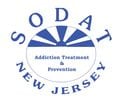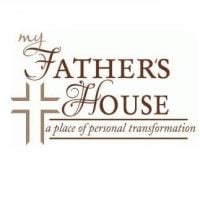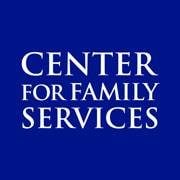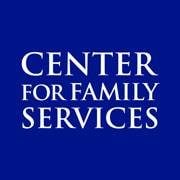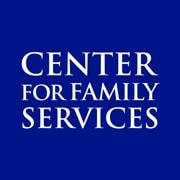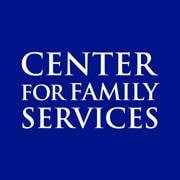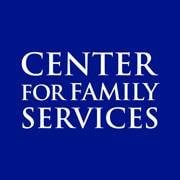Solstice Counseling & Wellness Center - Gloucester County
Drug Rehab Center in Woodbury, New Jersey
The Solstice Counseling & Wellness Center - Gloucester County is a CARF-accredited addiction treatment facility that offers a range of services and accepts most private health insurance plans.
About Solstice Counseling & Wellness Center - Gloucester County in New Jersey
Solstice Counseling & Wellness Center – Gloucester County, a private rehab in Woodbury, New Jersey, specializes in treating alcoholism, drug addiction, dual diagnosis, mental health, and substance abuse.
• CARF-accredited facility, ensuring the highest quality standards in treatment programs
• Offers a wide range of services, including aftercare support, drug rehab, dual-diagnosis treatment, intensive outpatient programs, outpatient services, detoxification programs, and intervention services
• Provides individualized care and personalized treatment plans to meet each person's unique needs
Solstice Counseling & Wellness Center – Gloucester County is committed to providing comprehensive and effective care, as evidenced by their CARF accreditation. They excel in offering various services to address addiction and substance abuse, recognizing the importance of addressing mental health issues alongside addiction.
The facility treats a range of addictions and issues, including alcoholism, drug addiction, dual diagnosis, mental health, and substance abuse. They offer multiple levels of care, such as intensive outpatient programs, outpatient services, and detoxification programs, along with aftercare support to ensure continued assistance and guidance post-treatment.
Genders
Ages
Modality
Additional
Accreditations

CARF
The Commission on Accreditation of Rehabilitation Facilities (CARF) is a non-profit organization that specifically accredits rehab organizations. Founded in 1966, CARF's, mission is to help service providers like rehab facilities maintain high standards of care.
Conditions and Issues Treated
A combination of treatments is often needed to treat drug abuse. Some addictions can be treated with counseling and support groups. In other cases, drug abuse can lead to a medical problem and require medical treatment. Treatment for drug addiction typically combines counseling and psychotherapy with medication and behavioral therapies.
A combination of treatments is often needed to treat drug abuse issues effectively. In the case of drug abuse, there is no easy answer or one-size-fits-all cure.
When someone in struggles with both addiction and mental or emotional illness, this is considered a dual diagnosis. Dual diagnosis treatment can include therapy for these issues to happen simultaneously, which will allow either of them to be treated effectively.
Sometimes people who have suffered from addiction disorder also suffer from co-occurring disorders such as depression, anxiety, bipolar disorder, etc., making them “dual diagnoses.” Dual diagnoses require specialized treatment programs where drug and alcohol addiction are addressed along with psychiatric illnesses. Some rehabilitation facilities provide patients suffering from cooccurrences a program with highly integrated services and a clean environment with few distractions to help them succeed.
Levels of Care Offered
This center offers a variety of custom treatment tailored to individual recovery. Currently available are Aftercare Support, Detox, Drug Rehab, Dual-Diagnosis, Intensive Outpatient, Intervention, Outpatient, with additional therapies available as listed below.
One of the first things an addict should do when entering treatment is to abstain from using illicit drugs completely. Depending on the length of time that the person has been using, the addict may have to go through alcohol or drug withdrawal. Fortunately, detox doesn’t have to be done alone, and withdrawal symptoms can be managed medically in an inpatient or outpatient setting. While detox may be uncomfortable, it is not life-threatening. Detoxification allows the addict to rid the body of all traces of drugs or alcohol and gives the addict a clean slate for their recovery.
The Intensive Outpatient Program offered by Solstice Counseling & Wellness Center - Gloucester County is designed for those who need intensive care but would rather get it in the comfort of their own home. The treatment programs vary in duration and intensity and can be tailored to suit the patient’s needs. The program includes regular visits to the facility, though the overnight stay is not needed. IOP is suitable for patients who have been treated in residential treatment programs and are in the transition phase. It helps the patient live at home and discharge some work or school responsibilities even while undergoing treatment. The patients gradually get back to their routine life with the support of a friend or family member.
Outpatient treatment is often used for drug addicts in drug rehab. Outpatient treatment consists of counseling and therapy sessions. This form of treatment is also called ‘day-treatment’. The outpatient treatment process begins with the addict’s initial detox period, lasting about ten days.
Outpatient treatment is used for those who are at moderate risk for ‘slipping back’ into the addiction, for those who:
- Are not currently experiencing any side effects from withdrawal and can handle social pressure
- Can handle stressors that might trigger relapse
- Have a stable living environment or have moved out of their previous environment, which was not conducive to being sober
- Have a support system that allows them to go to a facility a few times a week while still keeping their current responsibilities
- Have no legal obligations, being either on parole or probation, that require them to seek treatment at a mandatory facility
- Are not currently experiencing any side effects from withdrawal and can handle social pressure
- Have a stable living environment or have moved out of their previous environment, which was not conducive to being sober
Intervention Programs can be beneficial for those who are not prepared to engage in a recovery program. The individual’s friends and family will call and set up an intervention in or near Woodbury, and at which a specialist will come and lead the discussion. Interventions help family members motivate those affected to seek external support.
People involved in substance abuse usually deny the harmful effects of their changed behavior. They believe they can overcome addiction alone. This, however, can be difficult without external help. Intervention services deploy professionals to help organize meetings between individuals and family members. Family members converse openly with the affected individual and express concern for them. They explain different treatment options and persuade the individual to act immediately.
Completing a drug or alcohol rehab program is only the first step. Then comes aftercare support. These services include sober living accommodations, career counseling, and AA/NA programs for those struggling with sobriety or who want help maintaining it after initial rehab at an addiction facility.
They can last up to a year or more depending on what’s needed most urgently after the earlier stages are completed.
Therapies & Programs
Because no single treatment is effective for all addicts, the goal of treatment and therapy should be to figure out what works best for each individual. Tolerance and withdrawal levels differ from person to person, affecting the treatment intensity required. Addiction treatment should aim to help addicts develop healthy coping mechanisms for dealing with their addiction and its underlying causes.
Family therapy is beneficial for people who are in addiction treatment services because it offers addicts the opportunity to work with their family members to better understand what led them to make choices that contributed to their addiction.
This type of therapy helps family members reach a deeper understanding of how they can best support their loved one during recovery. It also helps the addict better understand their own motivations and triggers that led them to turn to substance abuse.
Family therapy can help addicts in the following ways:
- Assists family members in processing difficult feelings so they don’t blame or resent recovering addicts
- Assists family members in understanding how addiction has impacted the addict and everyone who is involved with them
- Allows the addict to take responsibility for their actions, while encouraging improved communication skills
- Helps family members understand how to best support an individual in recovery so addicts don’t relapse again.
Group therapy can help build a stronger support system and give addicts in Woodbury, NJ insight into their addiction that they gain through shared conversations. Group therapy occurs in a controlled group environment, exclusive of one on one meetings. This makes it safer for patients to feel comfortable sharing the struggles they’re going through and gaining perspective.
Trauma therapy is beneficial for people who are recovering from drug addiction because it helps them heal from past traumas that may have caused them to turn to harmful substances or led them to experience negative emotions that contributed to their destructive behaviors.
This type of treatment works by processing difficult experiences so individuals can learn how to process these events without having to turn to substances for coping.
Trauma therapy can help addicts in the following ways:
- Helps individuals understand their experiences and emotional responses to difficult events, including why they turned to drugs or alcohol
- Provides them with comfort and support while working through difficult emotions related to these traumatic experiences
- Offers an opportunity for addicts to have a voice and be heard, which can improve their self-esteem
- Can help them develop coping skills so they can better respond to triggers instead of turning to substance abuse.
Life Skills Services assist addicts in their recovery by teaching them healthy coping mechanisms that will aid them in becoming sober, focussing on helping people enter into, and maintaining long-term sobriety. Drug Treatment Centers provide Life Skills Services at varying levels of intensity, specific to the needs and requirements of each patient.
The benefits of Life Skills Services offered at Solstice Counseling & Wellness Center - Gloucester County:
- Restores hope and empowerment — Helps addicts believe that recovery is possible and instills a new confidence in their ability to achieve a positive, drug-free future
- Enhances family involvement — Encourages families to get involved in the recovery process and supports their understanding and encouragement of healthy behavior.
- Increases patient’s compliance — Helps patients take responsibility for and ownership of their recovery and encourages continued progress
- Reduces relapse rates — Encourages long-term abstinence and emphasizes the importance of establishing sober support systems.
Patient Experience
Creative Arts
Creative arts therapy, known as expressive therapy, may be used as a means of treatment. Acting and music are among the various forms used to express oneself where written words would fail through poetry or song. The goal is to find a balance by integrating thoughts and feelings to improve the mental state of patients in Woodbury, New Jersey.Experiential Therapy at Solstice Counseling & Wellness Center - Gloucester County
Experiential therapy uses engaging activities to help patients access deeper, often hidden emotions. For example, the patient could role-play a problematic situation or engage in activities like drawing, painting, poetry writing, music composition, exercising, or journaling to help process intense feelings.
Experiential therapy is a type of therapeutic approach that focuses on having patients work through problems, issues, or emotions by engaging directly in some real experience. Experiential therapy occurs face-to-face with a therapist who helps these people to explore their feelings first hand.
It is based on the belief that to truly understand and gain insight into oneself and behavior; it is necessary and helpful to have real experiences with the issues involved. Some therapists have developed the experiential therapy approach as a way of treating addictive behaviors or dealing with impulses related to addiction. It comes from an existential school of psychotherapy called ‘experiential existential.’
Payment Options Accepted
For specific insurance or payment methods please contact us.
Is your insurance accepted?
Ask an expert, call (888) 674-0062
Solstice Counseling & Wellness Center Associated Centers
Discover treatment facilities under the same provider.
Learn More About Solstice Counseling & Wellness Center Centers
Additional Details
Specifics, location, and helpful extra information.
Woodbury, New Jersey 8096 Phone Number(856) 345-1461 Meta DetailsUpdated April 15, 2024
Staff Verified
Solstice Counseling & Wellness Center - Gloucester County Patient Reviews
There are no reviews yet. Be the first one to write one.
Woodbury, New Jersey Addiction Information
The state of New Jersey is afflicted by the rising opioid overdose crisis and the increase in the number of residents engaging in illegal substance abuse. 90% of the 2,900 drug overdose deaths in New Jersey involved opioids in 2018. Over 1.1 million New Jersey residents reportedly use drugs in a given year. High prevalence of drug and alcohol abuse caused 14% of all deaths in the state between 2008 and 2017.
Woodbury, New Jersey has a moderate level of drug addiction and abuse problems. Opioid painkillers have the highest cause of overdose deaths in the city. 11.6% of teens in Woodbury have abused some type of drug. Some of the most commonly abused drugs in Woodbury are prescription drugs, cocaine, heroin, and marijuana. 12-step programs are self-help programs that use principles from Alcoholics Anonymous to help people recovering from addiction.
Treatment in Nearby Cities
- Egg Harbor Township, NJ (42.6 mi.)
- Summit, NJ (73.6 mi.)
- Ridgefield, NJ (91.6 mi.)
- Ringwood, NJ (100.4 mi.)
- Margate City, NJ (49.5 mi.)
Centers near Solstice Counseling & Wellness Center - Gloucester County
The facility name, logo and brand are the property and registered trademarks of Solstice Counseling & Wellness Center - Gloucester County, and are being used for identification and informational purposes only. Use of these names, logos and brands shall not imply endorsement. RehabNow.org is not affiliated with or sponsored by Solstice Counseling & Wellness Center - Gloucester County.


